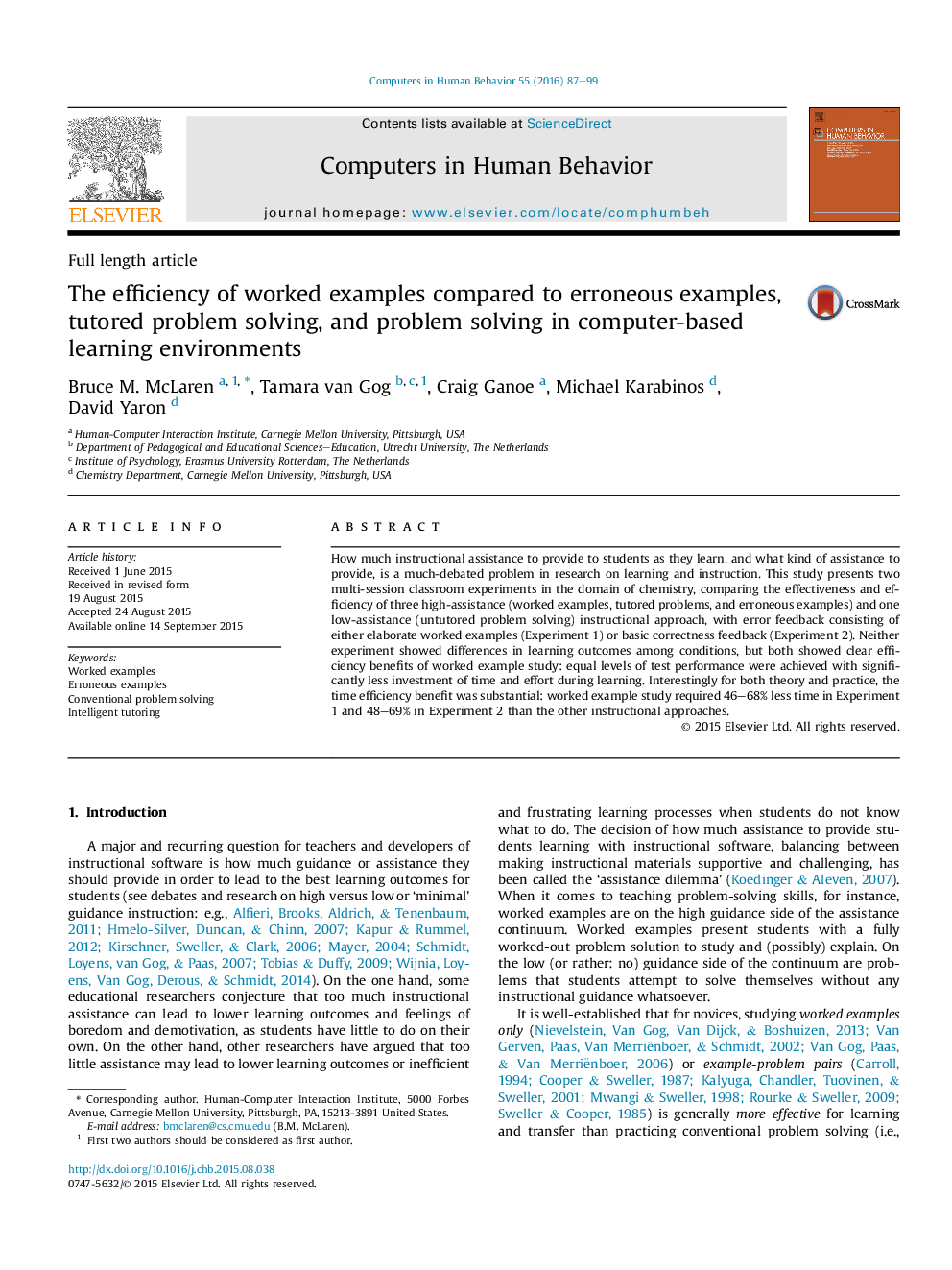| کد مقاله | کد نشریه | سال انتشار | مقاله انگلیسی | نسخه تمام متن |
|---|---|---|---|---|
| 350155 | 618432 | 2016 | 13 صفحه PDF | دانلود رایگان |
• We compared high and low assistance instructional materials, i.e., worked examples, erroneous examples, tutored problems, and problems.
• In two multi-session classroom experiments, worked examples proved to be the most efficient.
• Study time reductions with worked examples were between 46 and 69% compared to the other instructional approaches.
How much instructional assistance to provide to students as they learn, and what kind of assistance to provide, is a much-debated problem in research on learning and instruction. This study presents two multi-session classroom experiments in the domain of chemistry, comparing the effectiveness and efficiency of three high-assistance (worked examples, tutored problems, and erroneous examples) and one low-assistance (untutored problem solving) instructional approach, with error feedback consisting of either elaborate worked examples (Experiment 1) or basic correctness feedback (Experiment 2). Neither experiment showed differences in learning outcomes among conditions, but both showed clear efficiency benefits of worked example study: equal levels of test performance were achieved with significantly less investment of time and effort during learning. Interestingly for both theory and practice, the time efficiency benefit was substantial: worked example study required 46–68% less time in Experiment 1 and 48–69% in Experiment 2 than the other instructional approaches.
Journal: Computers in Human Behavior - Volume 55, Part A, February 2016, Pages 87–99
